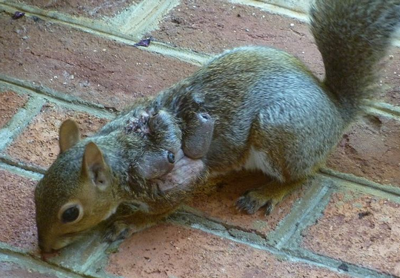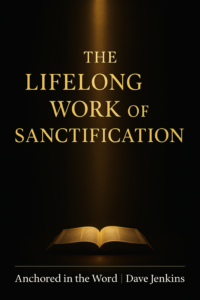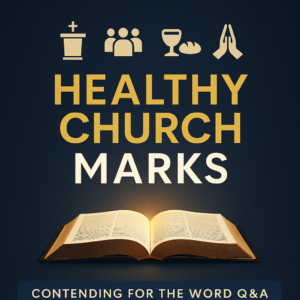⏱️ Estimated Reading Time: 0 min read
Does Fluffy drag his back legs around the house now because he is crippled with arthritis and covered in fleas? Relax! Did Fifi get cancer and you had to put her down? Praise God! Did Rover get run over? Hallelujah! It’s all part of God’s ‘very good’ initial creation.
How many Christians could say “Amen!” to ridiculous statements like this? Surprisingly, seemingly more than you’d think …
Death before sin
Many Christians have been influenced by the powerful ‘no death before sin’ argument that biblical (or ‘Young Earth’) creationists have long argued. Verses like Romans 5:12 and 1 Corinthians 15:21–22 make it abundantly clear that one man (Adam) brought sin and death into the Creation at the time of the Fall.
The argument is therefore that if the rocks containing fossils (dead things) that are found all over the world are really millions of years old (rather than the result of Noah’s Flood) then there was clearly death before Adam sinned and the Bible is wrong. It follows then that because God’s word is true, the billions of years interpretation of earth history is wrong, there was no death before the Fall.
Theistic evolutionists have largely avoided the problem by simply assigning Genesis to the mythological trash heap and not even trying to synchronize scripture with science, denying Adam and Eve were real people; and some even heretically saying Jesus was wrong about history.
Only human death?
More biblically minded individuals have attempted various ways to harmonize the Genesis account with deep time. Almost all of them try arguing that these Bible verses are simply talking about the death of humans, not animals before the Fall, and so the idea of animal death before Adam sinned is intellectually sound.
Granted, Romans 5:12 and 1 Corinthians 15:21–22 are certainly speaking of human death. But there are several scriptural verses that counteract the idea that animals died pre-Fall. Number one is Genesis 1:29–30 where (pre-Fall) God commands His creatures (people and vertebrate animals) to eat plants. God Himself spoke this and He ends the verse with “And it was so.” That would mean there could be no carnivorous activity pre-Fall.
In further support, Isaiah 11: 6 –9; 65:17–25 speak of a future restoration of peace and harmony between creatures as it was in the beginning before the Fall. “The wolf will dwell with the lamb” and “the lion will eat straw like the ox”, etc. “They will not hurt or destroy” and “they shall do no evil or harm”. A simple summary of the meaning of Isaiah 11:6–9 is given by British theologian Nigel Cameron.
Essentially it has two thrusts of teaching—it implies that there is, in fact, something fundamentally awry in the animal kingdom; that the predation and animosity which characterise it are not as they should be. And, secondly, it asserts that it is man’s religious condition that is responsible for this state of things; the absence from the earth of the ‘knowledge of the Lord’. Human sin and evil in nature are interconnected in a relation of cause and effect.
Indeed, Isaiah was alluding to the conditions in Eden before the Fall. Irish biblical scholar Alec Motyer, former Principal of Trinity College, Bristol, explains:
There is an ‘Edenic’ element in Isaiah’s thinking … There is also a change in the very order of things itself: the herbivoral nature of all the creatures points to Eden restored (Gn. 1:29–30). … The enmity between the woman’s seed and the serpent is gone (Gn. 3:15ab). Infant and ‘weaned child’ have nothing to fear from cobra and viper.



